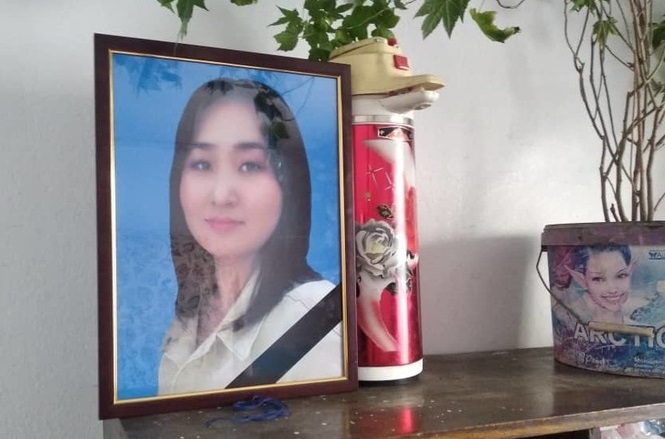The abduction of 'girlfriends' in Central Asia
From Tajikistan to Kazakhstan, cruel and humiliating practices against women remain woefully widespread when parents cannot agree on marriage. In Kyrgyzstan, according to official figures, over 1500 women have been kidnapped in the last 6 years.
Astana (AsiaNews) - The journalist and activist Alja Khamidullina has published an extensive reportage on AsiaPlus to denounce the ancient practice of kidnapping girlfriends, arranged marriages and checking girls' virginity in Central Asian countries, practices from which it seems very difficult to separate.
The culture of the people of this region is unique and very varied, but some traditional cornerstones lead back to dimensions that are no longer compatible with the mentality of contemporary men.
One of these is the practice of forced marriage through bride kidnapping, which takes place when the girl's parents do not agree on the marriage, or delay before granting consent for the ceremony.
Such situations are still repeated quite often in these countries today, and girls are taken in broad daylight in front of everyone without asking for their consent, as a market item. And rarely cases of this kind, officially prohibited by law, are then resolved before the judges, and impunity leads on several occasions to the murder of the reluctant girl.
This was what happened to Aizada Kanatbekova in Kyrgyzstan two years ago, raped and then strangled, and in that case, one of the most shocking in recent years, the attacker also eventually took his own life.
Another Kyrgyz girl, 19-year-old Burulaj Turdaly, was killed by the attacker at the police station under the eyes of the police, who had stopped them to verify the rape. Since then many other cases have occurred in Kyrgyzstan, Tajikistan and other neighboring states; in 2021, 560 cases were recorded among Kyrgyz alone, and over 1500 women have been kidnapped in the last 6 years, according to official figures.
Many victims are actually afraid to contact the police, so as not to dishonor their family. Several sensational cases have also occurred in Kazakhstan, where around 200 cases are recorded per year.
The virginity of girls is considered a true sacred cult in Central Asia, and the need to arrive intact until marriage is instilled from childhood. In Tajikistan to this day the check is carried out at the time of the wedding night, in which not only the groom, but the entire female part of her family must participate.
To be certain of the virginal condition, an "authoritative" relative is invited into the nuptial bed, who has the task of collecting the sheet immediately after the conjugal act is completed to observe the traces of blood left by the bride.
The possible gynecological check-up of the young woman is not excluded, and even the girl's family is authorized to assist, to ensure that she does not bring the shame of impurity upon all her relatives. In the Republican Center for Forensic Medicine in Dušanbe, the department where official tests are always available, which over 500 women turn to every year.
Furthermore, virginity testing is still practiced in over 20 countries around the world, despite condemnations from the UN and WHO, which consider it a humiliating practice. Fortunately, the cruelest practices prior to the spread of Islam, which arrived in these countries towards the end of the 14th century, have been overcome, while previously they got rid of females who were born before the expected male heir.
Yet the belief remains that male children are always preferable to females, despite the Muslim religion considering both genders as expressions of divine blessing. Education is often granted only to males, who must continue the family lineage.
There still exists the kalym, the purchase of the betrothed, which is practiced in all Central Asian countries. The negotiation usually remains confidential, but it is not uncommon for the payment to take place publicly during the wedding ceremony, in money, in precious ornaments or in wardrobe items. The external beauty and level of education of the fiancée are decisive arguments in determining the price of the “expensive” or cheap bride. Marriage is a very expensive affair, and families collect money throughout their lives, so as to properly respect all the ancient traditions.
07/02/2019 17:28







.png)










